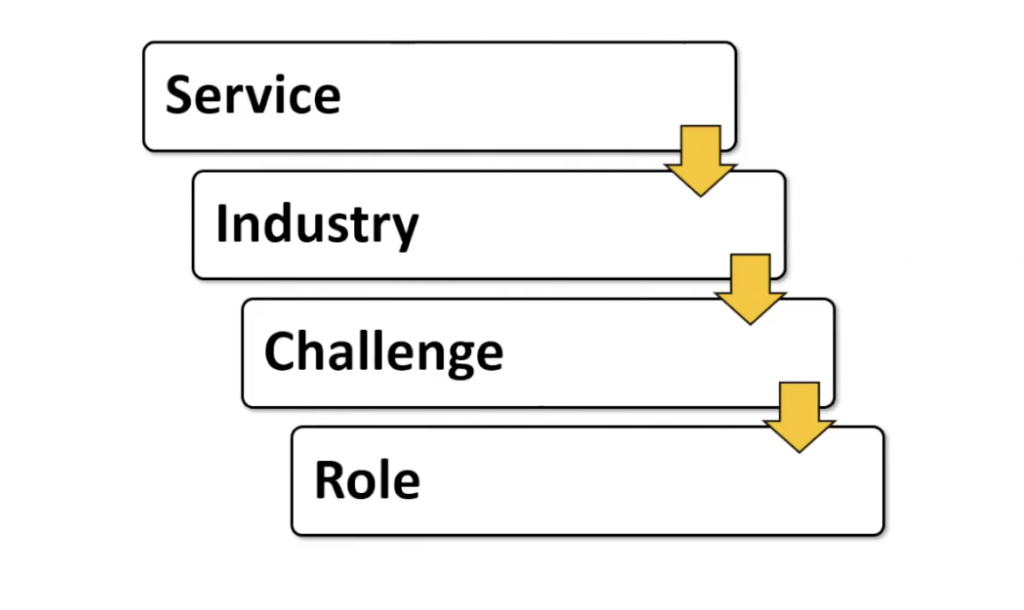Unfortunately, few companies have a defined customer case study strategy in place.
Often, they’ll just identify a good customer or project (“This would make a great case study!”) and then fly at it.
If they get that case study done, they may eventually turn to another good candidate and repeat the process.
And that’s as far as it goes.
But when you take this piecemeal approach, and overlook the strategy piece, you may run into the following problems:
- You struggle to get customers to agree to participate in your case study
- You get agreement but then struggle to find the right people to interview
- You feel weird asking because the engagement is over and done with
- You completed one (or maybe two) case studies but the rest have stalled
- Your completed case studies focus on a solution or industry you’re trying to transition away from
- All your case studies are over a year old
- Your case studies are relegated to some sad part of your website.
You don’t want to plunge in without a plan.
Instead, start by developing a strategy to guide your efforts and keep the case study train going.
Developing Your Case Study Strategy
So how do you develop a case study strategy?
You start by asking these three questions BEFORE you get the customer on the phone:
Question #1: What is your goal?
Are you trying to promote a certain service? Drive a certain type of lead? Upsell part of your offering?
You need to know your main purpose before you start.
Question #2: Whom are you targeting?
Not all positions are the same. The pressures a CEO and CMO face are different than the pressures faced by someone in IT.
You need to know who you’re selling to because you want them to see themselves in the story.
After all, case studies are human stories. They’re not really about the company.
They’re about how you helped the people within the company succeed and reach their objectives.
Case studies are human stories. They’re not really about the company.
Question #3: How will you use them?
Will you relegate your case studies to the resources section of your website? (Hopefully not.)
Will you put them on your blog? Use them in outreach? Arm your sales team with them?
You need to know HOW you will use your case studies because that will influence the case study format and how you put them together.
Figure out the story you want to tell
Once you’ve asked yourself these questions, you can go deeper into figuring out the kind of stories you want to tell.
If you’re trying to promote a particular service, for example, you’ll want to speak with a customer who’s gone through the experience of implementing that service.
If you’re trying to promote a particular service within a particular industry, you’ll want to speak with a customer who’s implemented that service in that industry.
Or maybe you want to show leads that you solved a particular challenge within that industry with that service.
Or maybe you want to appeal to a particular role within that industry who implemented that particular service.
As you can see, you can define your “ideal” case study candidate by many factors, drilling down from service, to industry, to challenge, to role:

By considering all of these layers, you can figure out who on your client roster can give you the story you want.
Tip: Talk to your sales team
A possible shortcut in this kind of analysis is to talk to your sales team.
Salespeople need case studies like oxygen. They’re the most persuasive asset they have to close deals.
Customer success stories are the most persuasive asset your sales team has to close deals.
Your sales team will know the kinds of stories they need to share with leads and the most common problems and pushback.
So rather than huddling with your marketing team to develop your strategy , bring your sales team into the conversation.
The stories you tell will be the stories you attract
One last key point: The stories you tell will be the stories you attract.
If all of your case studies tell the story of how small accounting firms have used your software to grow, you will attract small accounting firms that want to use your software to grow.
Which is a problem if you want to attract bigger accounting firms, for example.
So think carefully about the stories you want to tell and plan accordingly.
Define your case study strategy BEFORE you start
It’s easy to overlook the strategy piece in your excitement to get started, but it’s super important.
Creating customer case studies isn’t easy. It takes time and resources to do well.
So when you do it, you want to make sure you’re doing it right.
Want our team to create those case studies for you—and help with the strategy piece?
Contact us to start the conversation.